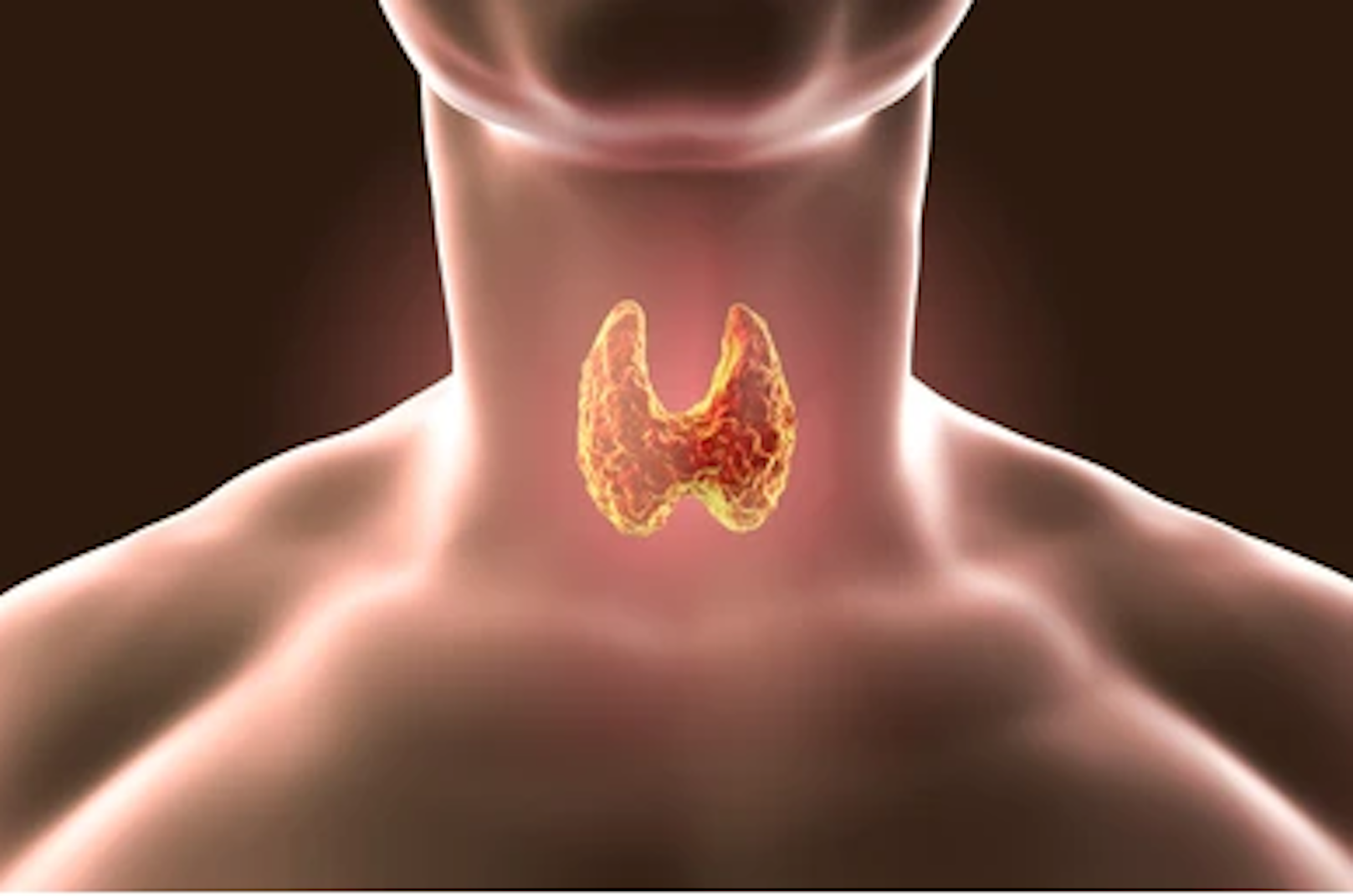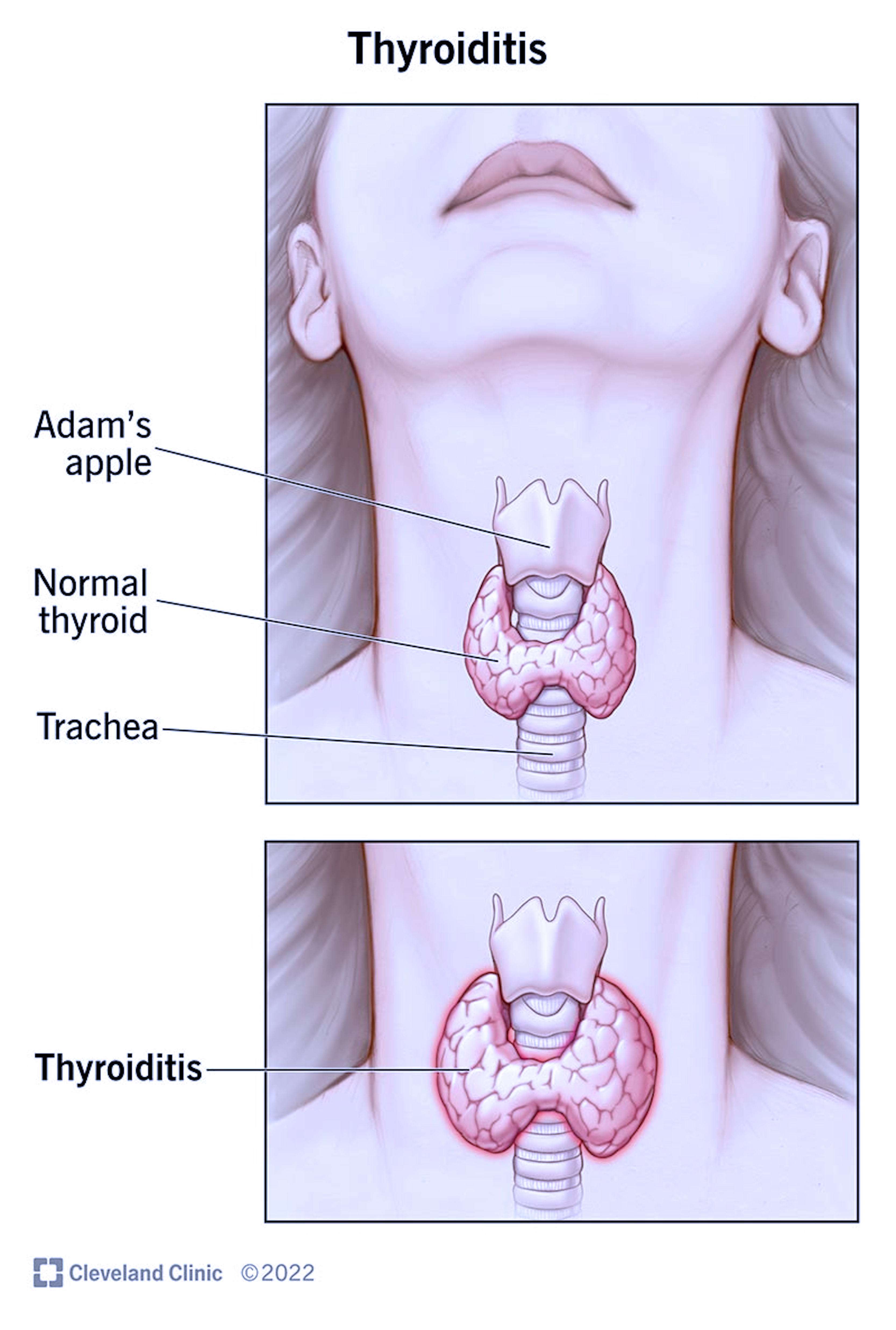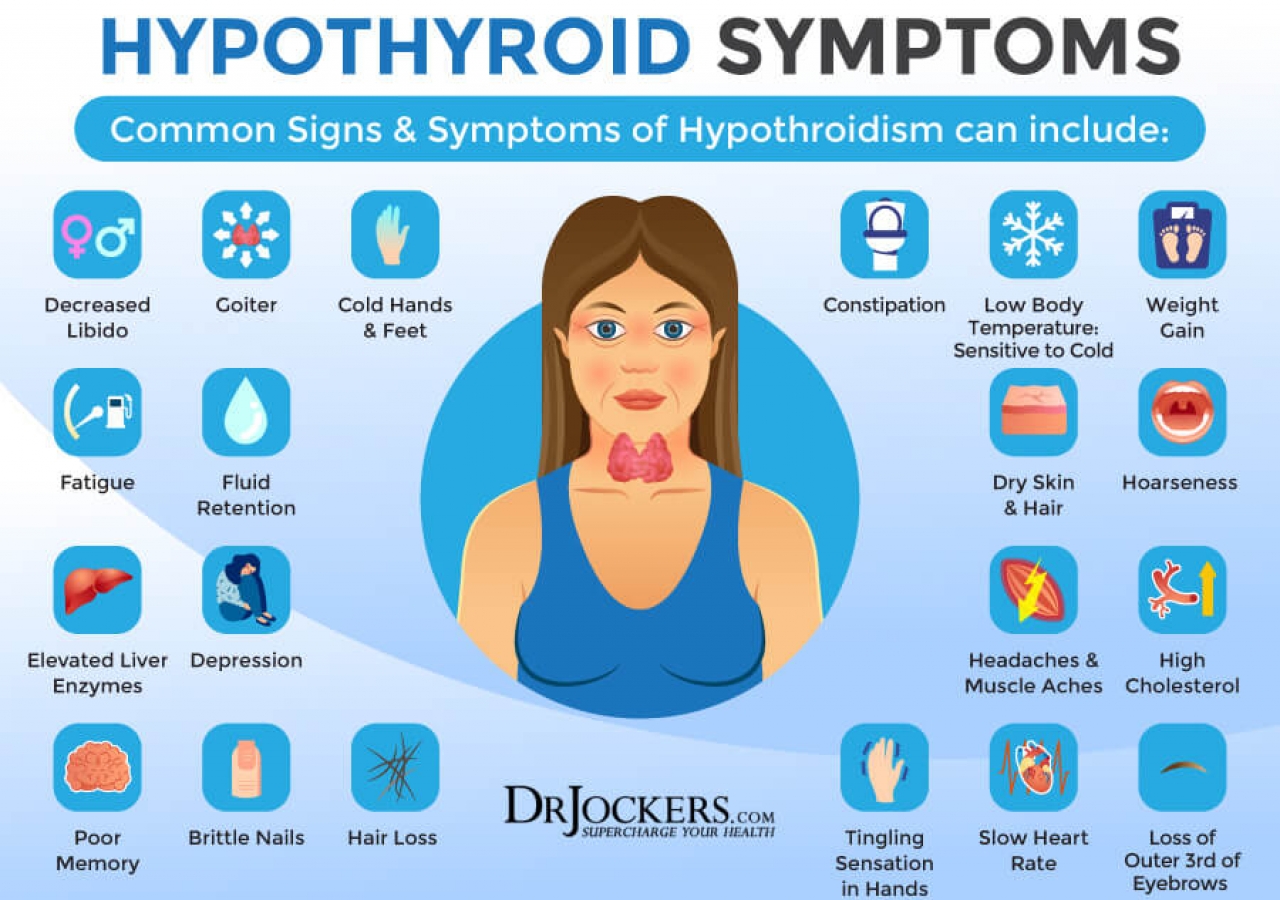As the month of January is dedicated to thyroid disease awareness, it is important for our Jamat, particularly those who are at risk for thyroid disease, to understand various functions of the thyroid gland, signs of abnormalities in thyroid function, and some remedies to mitigate the consequences of thyroid disease. According to the American Thyroid Association, an estimated 20 million people in the United States, or 1 in 10 individuals, have a thyroid condition.[1] Additionally, women are 5-8 times more likely to experience thyroid problems compared to men.[2] Other risk factors for developing thyroid disease include:[3]
● Having a family history of thyroid disease.
● Having one or more autoimmune conditions, such as rheumatoid arthritis, Type 1 diabetes, or lupus, to name a few.
● Taking a medication that contains iodine.
● Being a woman over the age of 60.
● Having undergone treatment for cancer or a thyroid condition in the past.
The role of the thyroid gland
Image 1

The American Thyroid Association defines the thyroid gland as “a butterfly-shaped endocrine gland that’s normally located in the lower front of the neck.”[4] The gland’s main responsibility is to secrete thyroid hormones into the blood to help the body perform essential functions, including regulation of heart rate, breathing, and body temperature; management of cholesterol levels; and maintaining normal human body temperature.
These metabolic processes allow human systems to maintain optimum function. In fact, the thyroid gland controls metabolism using two specific hormones: thyroxine or T4 (which contains four iodine atoms) and triiodothyronine or T3 (which contains three iodine atoms). These hormones are ideally regulated and replaced according to the direction of the pituitary gland, which is located in the center of the skull.[5] When thyroid hormones are either over or under-imbalance, the pituitary gland releases a thyroid stimulating hormone (TSH) to restore the appropriate number of thyroid hormones in the body.[6]
Thyroid Problem #1: Hyperthyroidism
Unfortunately, the thyroid gland may produce too many thyroid hormones in certain individuals, a condition known as hyperthyroidism. As a result, the body may accelerate its processes, causing individuals to experience hand tremors, increased sweating, hair loss, difficulty sleeping, anxiety and irritability, and weight loss despite a regular or even increased appetite.[7
While the direct cause of hyperthyroidism remains largely unknown, there are various factors that can be linked to the development of this condition:
● Grave’s disease: This autoimmune disorder represents the most common cause of hyperthyroidism in which antibodies stimulate cells in the thyroid gland to make excessive thyroid hormones. Grave’s disease is often seen in younger women and can run in multiple members of the same family.
● Toxic Nodule or Toxic Multinodular Goiter: Either one or several areas of the thyroid gland (a nodule) may be producing extra thyroid hormones. This cause is more prevalent in individuals who have limited iodine in their diet.
● Thyroiditis: Also known as inflammation of the thyroid gland, thyroiditis can cause thyroid hormones to leak into the bloodstream, resulting in excessive hormones in the body. Thyroiditis can be triggered by viral infections, post-pregnancy, and medication side effects, among others. Fortunately, hyperthyroidism due to thyroiditis is likely to go away on its own within a few weeks or months.
Thyroid Problem #2: Hypothyroidism
On the other hand, certain individuals may encounter hypothyroidism - a disease marked by the thyroid gland’s insufficient production of thyroid hormones. Consequently, the body slows down its typical processes, prompting symptoms like fatigue, sensitivity to cold, dry skin, and changes in memory and mood.[8]
Like hyperthyroidism, hypothyroidism does not have a direct known cause, although several factors can contribute to the development of this condition:
● Preexisting autoimmune conditions: In certain individuals, the immune system can mistakenly attack thyroid gland cells and their enzymes as invaders, such as in Hashimoto’s disease. As a result, there are limited cells and enzymes to create enough thyroid hormones in the body.
● Partial or complete surgical removal of the thyroid gland may limit the body’s ability to produce sufficient thyroid hormones for optimum human function.
● Patients who undergo radiation treatment, including individuals with cancer, lymphoma, Graves’ disease, or nodular goiter, can experience weakened thyroid function.
Testing for Thyroid Conditions
Given that symptoms for thyroid disease are fairly ambiguous and can be mistaken for other aging-related health problems if you suspect you or your family members may have this condition, request a simple blood test for TSH (thyroid-stimulating hormone).[9] People who have hyperthyroidism will have an elevated T3 level and low TSH, whereas people with hypothyroidism will have higher-than-normal TSH levels since the thyroid gland is instructed to make more T4.
Image 3

Individuals with a suspected thyroid condition can also perform a simple self-evaluation before seeking medical advice.[10] Simply tilt the head back and drink a sip of water. Upon swallowing, observe the neck for signs of bulging. If an obvious bulge or enlarged gland is discovered, contact your doctor as soon as possible.
Natural Remedies to Manage Thyroid Symptoms
Both hyperthyroidism and hypothyroidism can be treated and effectively managed with medication, surgery, or hormonal treatments as appropriate for each individual’s unique health needs. However, thyroid symptoms can be mitigated with natural remedies in conjunction with any treatments suggested by a medical professional. The following are some natural ways to cope with thyroid-related complications upon consultation with your healthcare professional:
● Incorporate iodine into your diet. In addition to consuming trace amounts of table salt, iodine can be found in shrimp and dairy products.[11]
● Add selenium into your diet. Selenium is another trace element that can assist with metabolism regulation, which is valuable for thyroid patients. Foods rich with selenium include Brazil nuts, seafood, and avocados.[12]
● Consume probiotic-rich foods: According to an article by the Institute for Natural Medicine, autoimmune responses are often due to inflammation in the gut and persistent microbiome imbalance.[13] Foods like yogurt, kefir, and sauerkraut can improve stomach health and encourage the development of healthy gut bacteria.
● Exercise regularly: Exercising any time of day, but especially in the morning, stimulates the thyroid gland to produce sufficient thyroid hormones while also boosting metabolism.[14]
● Adopt effective stress management practices: In thyroid patients, heightened cortisol or stress hormone levels can consequently decrease the necessary production of
TSH. Effective stress management practices can include yoga and meditation, spending quality time with friends and family, volunteering, and trying out new hobbies.
By evaluating one’s thyroid health and encouraging others to do the same, we can all ensure that this small but mighty gland works properly to sustain the fundamental processes for our overall good health.
- American Thyroid Association: Optimul Thyroid Health for All click here.
- Cleveland Clinic Thyroid Disease click here
- American Thyroid Association: Optimul Thyroid Health for All Hyperthyroidism click here.
- American Thyroid Association: Optimul Thyroid Health for All Hypothyroidism (Underactive) click here.
- January Thyroid Disease Awareness Month click here.
- January is Thyroid Awareness Month Here what you Should Know click here.
- Natural treatments and home remedies for hypothyroidism click here.
- Natural Treatments for Hypothyroidism click here.
- American Thyroid Association: Optimul Thyroid Health for All Thyroid Function Tests click here








